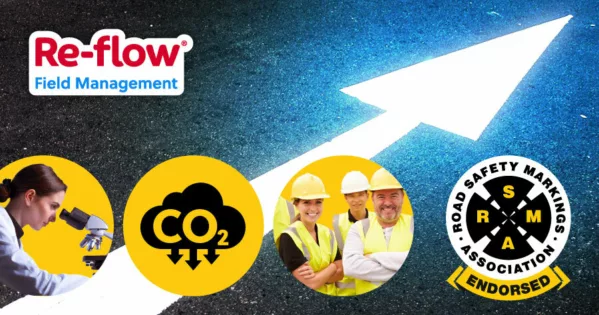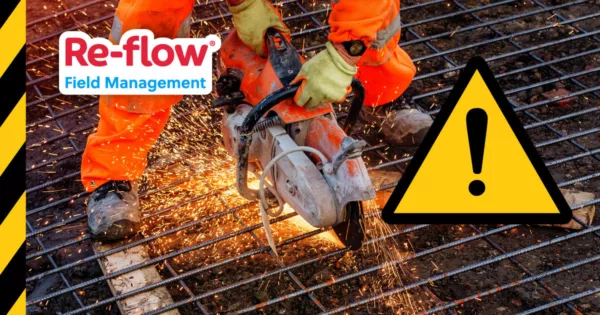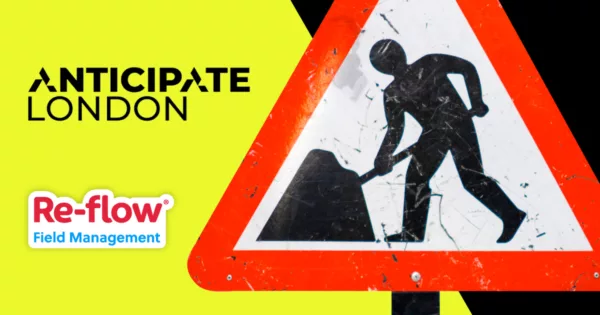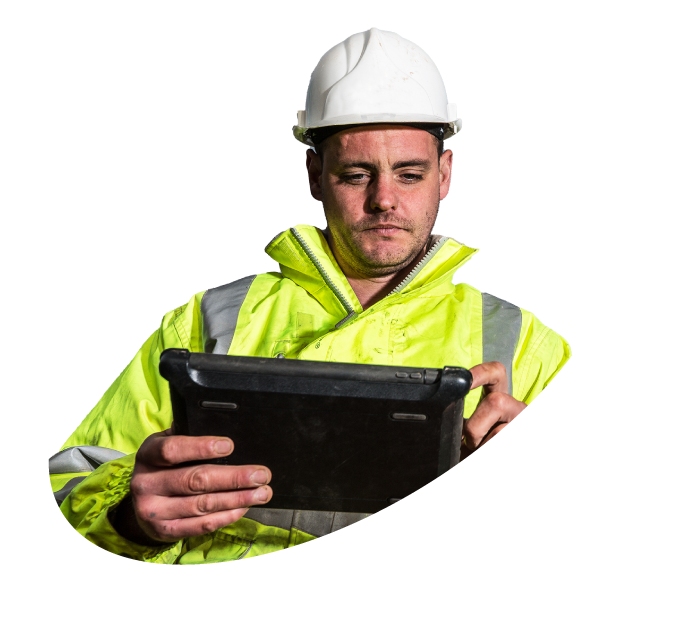
News
The Conversation - Episode 4
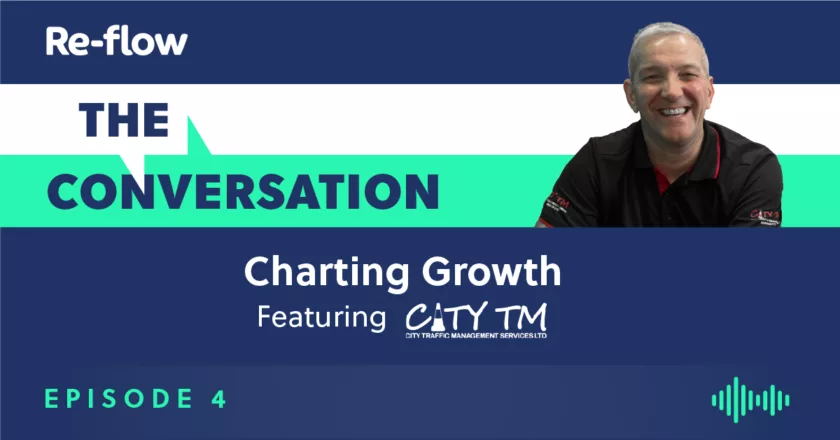
We are excited to share with you the fourth instalment of Re-flow’s podcast – The Conversation. This time, the team sat down with Mat Field, Managing Director of City Traffic Management to talk about where they started, their rapid growth, his thoughts on technologies and sustainability in the industry and working with Warner Bros.
Since its establishment in 2009, City TM has distinguished itself as London’s leading traffic management services supplier. A staggering 100+ years of combined knowledge within the senior leadership team shine through their every undertaking, delivering the highest standard of work, without fail. Their mantra is ‘quality at all times’.
Re-flow’s Josh Sims, Marketing Executive, started the conversation by asking Mat about the beginnings of City TM and their current operations.
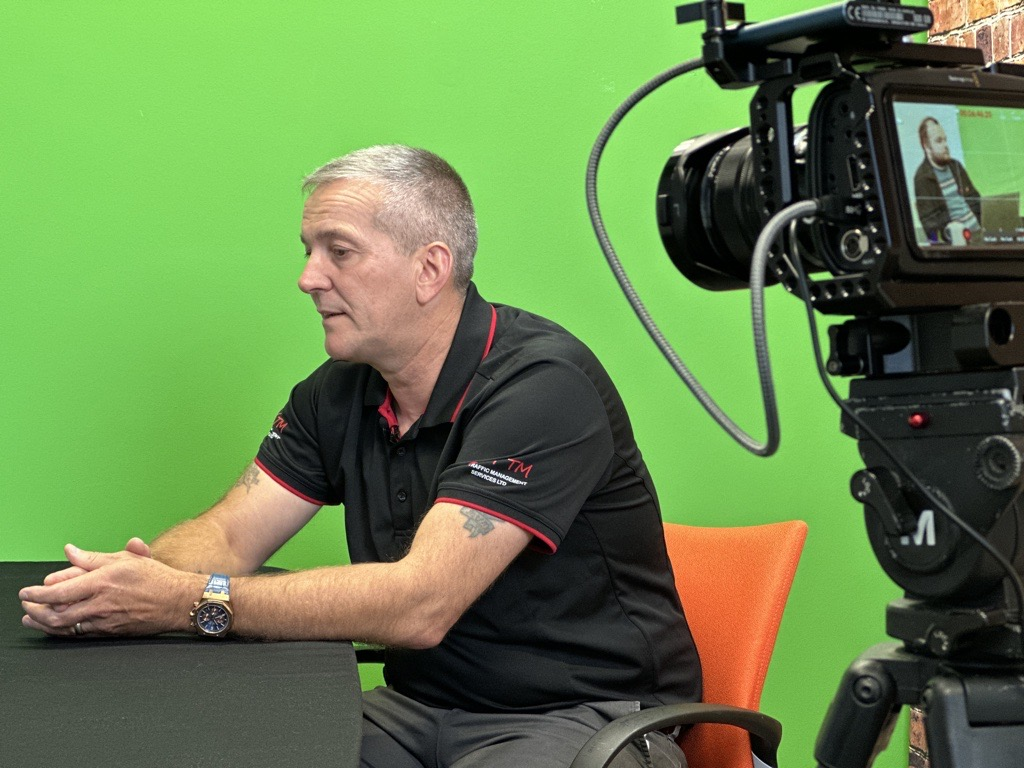
MF: “We operate from two delivery hubs - one in Hertfordshire and one in Kent - and we undertake a majority of works for surfacing companies, maintenance companies, fibre roll out businesses and we undertake some civils works as well.
In 2009, I decided to take a jump into the unknown, handed in my resignation for the company I was working for. I started City at that point, just me, working out of my bedroom. Trying to gamble that I would get work for the next week, and the next week, and the next week and slowly we did get the work.
We managed to build the work up through repetition of business, through sticking with a mantra of quality at all times really and we still work to that mantra now. I stayed like that for about three and half years just working for myself, to the point where we had too much work and I was getting back to the point of why I’d left. So, we took on another employee and from there the journey began.”
The conversation then touched on City TM’s growth, how they branched out into Mat’s specialism, contracting, and how COVID was a game changer for the business.
MF: “Luckily for us we did make that decision, because when COVID struck in March 2020 the week that the world closed down at the beginning of that week we had about 300 jobs booked in for training and by the end of the week we had none. Had we just been a training company at that time that would have been us finished. City TM would have ceased traded as we had no work and no forward vision on any work.
A lot of our competitors in our region did decide to go down the furlough root, close their doors to try and retract and hold back what they had. For us it was the perfect opportunity to expand the business. Going into COVID I think we had about 10 vans perhaps 15 members of staff and coming out I think we had about 50 vans and 60 staff so it was a huge growth period for us.”
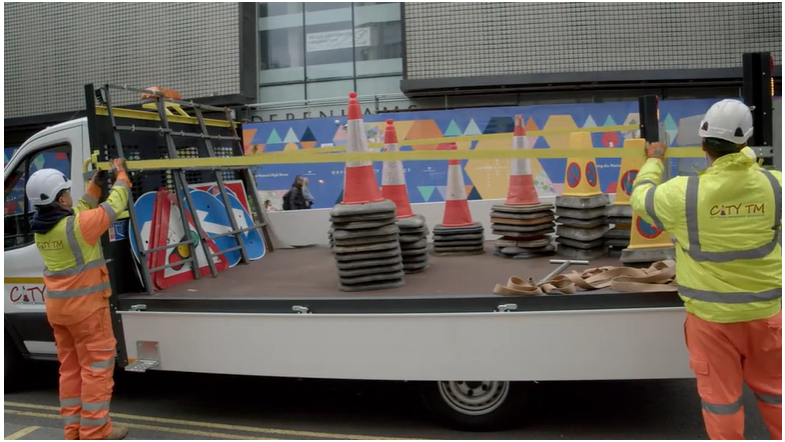
Mat and Josh then go on to discuss how technology is now impacting the industry and how City TM have started to embrace it.
MF: “Probably the worst part of what we do on a day-to-day basis is incursions, abuse, road worker abuse. So, we’re always looking around what’s available, what other people are doing, what other people are trialling and what we can trial, what we can bring to the industry.
There’s some really great stuff out there from businesses like Roadside, SRL, HRS. One of the latest ones that we’re trialling, and is working really well for us, is AMPR cameras. We place an AMPR on the gate, we put a small VMS board behind the gate and as the general public approach it they are usually aggravated because they’ve come through the soft closures telling them it’s closed. When they get to the closure, they’re angry because they now have to turn around. With the AMPR cameras and the VMS it flashes up their number plate and they know they’re on camera so we’re finding so much more they’re turning around and driving off. It’s stopping the abuse; it’s stopping the confrontation.
As the world turns more technological were going to have to embrace that and bring it into our systems and if it helps our road workers be safer why would you not?”
Sustainability is word on everybody’s lips and a hot topic in construction. Environmental impact is something close to City TM’s heart.
MF: “We work with Greener Highways who have obviously had a huge impact in sustainability. Going beyond that there is so much more we can do as a business. So, we are currently looking at alternative fuels and we’ve got electric vehicles.
The batteries we use in our sequential lights, our road danger lamps, we recycle them and check where they’re going. Even down to simple things like our cone tops are plastic so when a cone is damaged, they won’t fit back together so what do we do with the plastic cone tops where do they go?
We’ve also got an idling vehicle policy. A van will sit there idling for a number of hours so that the workers stay warm. We are looking at in cab heaters, so they turn their engines off.”
Mat went on to talk about why he thinks City TM grew so exponentially and his top tip for success.
MF: “You can grow a business but it’s growing it sustainably that is the difficult part. If you just throw people at things, and buy more vans, buy more equipment, it doesn’t work it will fail at some point, you’re just churning over. It’s the team around us – we look after our staff, and they look after us. It’s having that team around us and it’s seeing what part of the business is going to grow and where and trying to forward plan it. I guess a lot of people will wait for the business to grow and then act on it. What we try and do is act on it and then grow into it.
If you don’t diversify you die with the dinosaurs.”
To hear the full City TM story and more insights from Mat on the industry watch the full episode above, or listen on Spotify, Google Podcasts, Apple Podcasts and YouTube.
